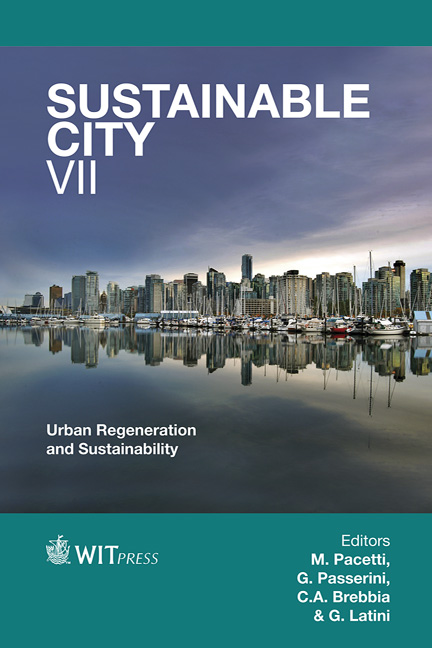Urban Planning Measures For Solar Optimisation
Price
Free (open access)
Transaction
Volume
155
Pages
11
Page Range
663 - 673
Published
2012
Size
967 kb
Paper DOI
10.2495/SC120562
Copyright
WIT Press
Author(s)
A. Mueller, S. Linder, A. Saade, M. Jedliczka, M. de l’Epine, E. Willdbrett, E. Kjellsson, A. Cornander, J. Fernandes, R. Arndt & S. Pintarits
Abstract
When a city develops an urban plan of a new area or the retrofitting of an existing one, the choices made and the infrastructure created are long term and lasting (minimum 50 years). The optimisation of solar gains is therefore a major issue as it has an impact on energy consumption and on the quality of life for residents (natural sunlight levels). In France, the Grand Lyon local energy agency (ALE) and HESPUL, are working on the optimisation of solar considerations within the urban planning process of a new urban area. In Germany, building on the experiences by the city of Munich, ECOFYS is working with several departments of the city council to set up guidelines for solar urban planning. The guidelines will afterwards serve for each new urban planning project in the city. In Lisbon, the rehabilitation project of an existing area is underway. Energy consumption targets have been decided for this area. The project area is mainly social housing and a new study into the integration of solar technologies to the area is ongoing. In Sweden, the same kind of project is developed in Malmö where an area called \“Sege Park” is undergoing retrofitting measures and new developments with a green profile. Malmö City Council is
Keywords
solar urban planning, solar development, passive solar gains, solar energy supply, solar mobilization, improvement of planning process





